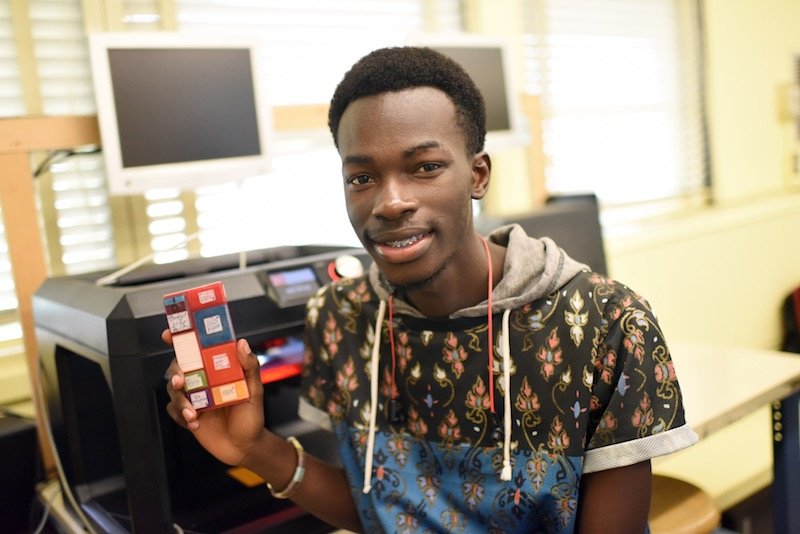The technological virtuoso behind the algorithms that made Uber, Instagram and Snapchat what they are now. The computer engineer also sees himself as a “cultural architect” who aims to “level the playing field” between Silicon Valley and young communities of color.
Most technological geniuses start young, and Ghanaian prodigy Iddris Sandu is no exception. Iddris began learning programming on his own in a public library at the age of 10. At the age of 15, Sandu created an application for his school that gave students, in turn, instructions on how to navigate their classrooms.
He didn’t go to university, telling CNN that “I couldn’t afford it, being a minority,” he said, and that he didn’t want to “wait four years; I wanted to make an impact now.
Sandu still wrote an algorithm he sold to Instagram that filtered key sites or activities by user location to identify possible interests, but the program has since been revised. At the age of 18, he was a consultant for Snapchat before moving to Uber, where he created software (Autonomous Collision Detection Interface) for his self-piloting cars.
“We use a sensor to measure the position of your spine in a car,” he told CNN. “And we also use a device to measure the position of your hands, to find out where they were in the car. »
Despite great success with giant technology companies, Sandu was motivated to create change in his community.
“Information is one of the highest forms of class. And it’s what keeps people divided. You should be able to think at a higher level, instead of strictly as consumers. And people of color in particular are more likely to be consumers than creators. It’s really hard to get out of poverty or to change the economic power structure if you always want to be a consumer rather than a creator. That’s what I’ve tried to do by changing that narrative. And so far it has worked, it has succeeded. “He told Face2Face.
“There is a division in the world of technology, and being a person of color in a dominant field that doesn’t resemble you is difficult, but absolutely necessary to directly affect and empower culture,” he told Face2Face.
Sandu plans to host student workshops in some of Africa’s most populous cities.
“The next technology leaders will come from Africa. Why will they come from Africa? Because they are exposed to problems to which they have the solutions,” he told CNN.
He wants to teach African children to build platforms that they own. “What’s happening right now is that we’re all on Instagram, we’re all on Facebook, Snapchat, all these giants of technology, and we’re letting them control how our stories can be told,” Sandu said.
“If we really want to tell our stories the way they need to be told, we need to focus on the platforms we create so we can tell our best stories,” he added.

